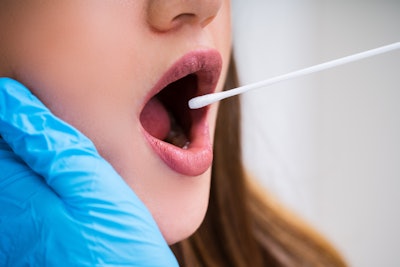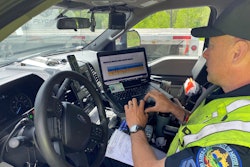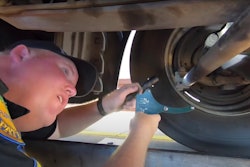
The Department of Transportation on Monday filed a Final Rule that will allow oral fluid as an authorized testing method for the presence of unlawful drugs. The 227-page final rule is scheduled for publication in the Federal Register May 2 and will become effective 30 days later.
In order for an employer to implement oral fluid testing under DOT's regulation, the U.S. Department of Health and Human Services (HHS) will need to certify at least two laboratories for oral fluid testing, which has not yet been done. In essence, the DOT on Monday cleared a regulatory hurdle that allows for oral fluid testing, but those tests are not yet authorized until HHS makes its certifications.
DOT in February proposed amending the transportation industry’s drug testing program procedures regulation to allow oral fluid testing in lieu of urine testing, giving "employers a choice that will help combat employee cheating on urine drug tests and provide a less intrusive means of achieving the safety goals of the program."
The measure comes as the number of drivers flagged for drug infractions continues to climb at a break-neck pace. As of January 1 last year, 81,052 professional drivers were in Prohibited Status with FMCSA's Drug and Alcohol Clearinghouse with a violation. A year later that number reached 120,345, and less than nine weeks ago was at 125,810.
Oral fluid collection mitigates cheating since the test is administered face-to-face, usually with a sample collector swabbing inside the cheek of an applicant, and the DOT contends "adding oral fluid testing as an option is consistent with the careful balancing of an individual’s right to privacy with the Department’s strong interest in preserving transportation safety by deterring illicit drug use."
Prior to Monday's issuing of the Final Rule, urinalysis and blood analysis (in limited circumstances) were the only acceptable means to conduct DOT drug screenings.
Among benefits for trucking companies of oral testing, DOT said, are that it’s generally cheaper than urine testing (DOT estimates between $10 and $20 cheaper per test versus urine). DOT also notes that by giving the option of both urine and oral testing, employers can use one or the other depending on the situation due to the different detection windows associated with each.
The department says the generally narrower detection window offered by oral fluid testing could give fleets a better chance at detecting recent drug use, such as for a post-accident drug test, adding "while oral fluid testing may provide a better indicator of an employee’s recent use of the drug, it also detects frequent users... [but] we note that oral fluid windows of detection will likely be shorter than for urine. Employers, working in conjunction with their service agents, should determine whether urine or oral fluid collection is best for their program and in what contexts."
There has been an ongoing push to recognize hair testing. The FAST Act transportation bill, signed into law by President Obama in December 2015, allows for hair follicle drug testing as a DOT-approved method, but not until HHS establishes guidelines for testing. The FAST Act mandated that those guidelines be developed within a year of the FAST Act becoming law, but HHS did not publish proposed guidelines until September 2020. HHS has not yet issued a final version of those guidelines.












